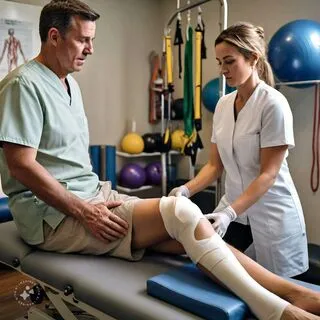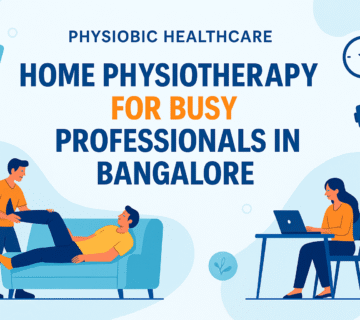Abstract: Knee pain surgery, whether due to injury, arthritis, or degenerative conditions, necessitates a structured rehabilitation Knee Pain physiotherapy program for optimal recovery. This article explores the critical role of Physiotherapy after knee surgery, focusing on rehabilitation techniques, patient outcomes, and the overall impact on mobility and quality of life.
1. Introduction Knee pain surgery, including procedures like arthroscopy, total knee replacement, or ligament repair, is common among individuals experiencing significant joint issues. Physiotherapy plays a vital role in the rehabilitation process, helping patients regain strength, mobility, and function. This paper examines the importance of physiotherapy following knee surgery and its effectiveness in enhancing recovery.
2. Importance of Physiotherapy Post-Surgery Following knee surgery, physiotherapy is essential for several reasons:
- Pain Management: Physiotherapists employ various techniques, such as manual therapy and modalities like ice and heat, to manage pain and swelling.
- Restoring Range of Motion: Early mobilization and specific exercises help restore flexibility and prevent stiffness, which is crucial for recovery.
- Strengthening Muscles: Targeted exercises help rebuild muscle strength around the knee, improving stability and function.
- Improving Balance and Coordination: Rehabilitation includes balance training to reduce the risk of falls and enhance overall stability.
3. Physiotherapy Techniques for Knee Surgery Recovery Effective physiotherapy for post-operative knee patients typically includes:
- Assessment and Goal Setting: Initial evaluations help physiotherapists create personalized rehabilitation plans based on individual needs and goals.
- Therapeutic Exercises: A combination of passive and active exercises is employed to enhance mobility and strength progressively.
- Manual Therapy: Techniques such as joint mobilization and soft tissue massage can alleviate pain and improve function.
- Education and Self-Management: Patients receive guidance on post-operative care, pain management strategies, and home exercises to promote independence.
4. Evidence of Effectiveness Numerous studies have demonstrated the effectiveness of physiotherapy in post-operative knee surgery recovery. Research indicates that patients who engage in structured physiotherapy programs experience:
- Faster Recovery: Patients often return to normal activities sooner compared to those who do not participate in rehabilitation.
- Reduced Pain Levels: Knee Pain physiotherapy significantly lowers pain scores and improves overall satisfaction with the surgical outcome.
- Enhanced Functional Outcomes: Patients show improved range of motion, strength, and balance, contributing to better long-term results.
5. Challenges in Post-Operative Rehabilitation While physiotherapy is beneficial, several challenges can impact recovery:
- Patient Adherence: Consistent participation in rehabilitation exercises is crucial for success, but some patients may struggle with commitment.
- Access to Services: Limited access to physiotherapy services, particularly in rural areas, can hinder recovery efforts.
- Individual Variability: Factors such as age, comorbidities, and pre-existing conditions can influence rehabilitation outcomes.
6. Conclusion Knee Pain physiotherapy plays a pivotal role in the recovery process after knee pain surgery. Through pain management, strengthening exercises, and education, physiotherapy enhances mobility and improves quality of life for patients. Addressing challenges in adherence and access to care is essential for maximizing the benefits of rehabilitation. Continued research and innovation in physiotherapy practices will further enhance recovery outcomes for knee surgery patients.



